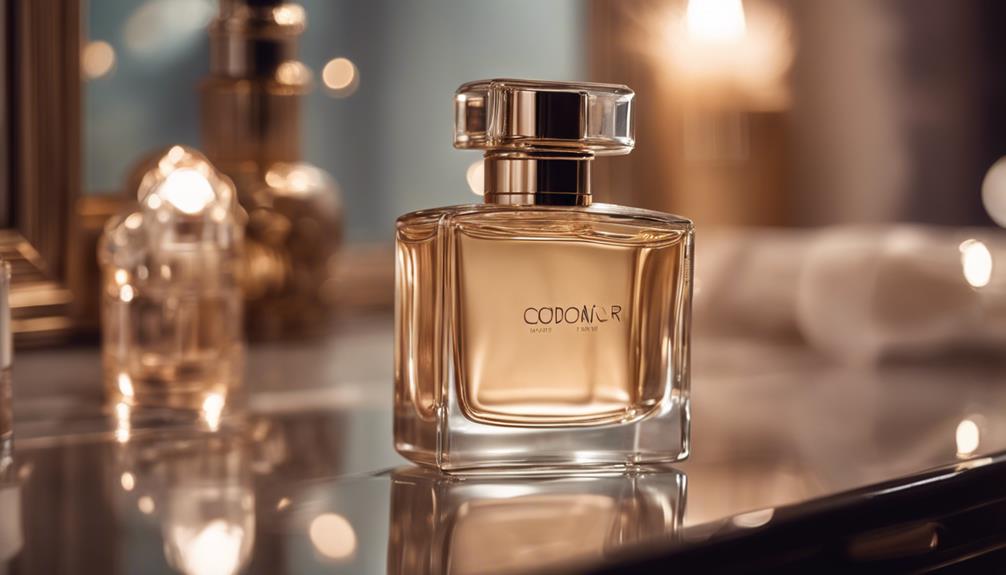Maria Georgas's surprising decision to walk away from becoming the next Bachelorette sparked widespread curiosity, as she prioritized her mental health and well-being over the allure of reality TV fame. Georgas acknowledged not being in the right headspace for the role, showcasing maturity and self-awareness. The pressure of national television and the reality TV world, where contestants often sacrifice mental well-being for entertainment, likely influenced her decision. By prioritizing her well-being, Georgas set an example and sparked conversations about the importance of self-care. As the story unfolds, the significance of Georgas's choice becomes increasingly clear, revealing a more nuanced understanding of the intersection of reality TV and mental health.
Key Takeaways
• Maria Georgas prioritized her mental health over reality TV glamour, showcasing maturity and self-awareness.
• She acknowledged not being in the right headspace for the role, recommending Jenn Tran instead, emphasizing mental health.
• The reality TV world often sacrifices mental well-being for entertainment, making self-care crucial in the competitive environment.
• Georgas' decision was influenced by the pressure of national television, which caused anxiety and unease, leading to her decline.
• By prioritizing well-being over fame, Georgas set an example, inspiring conversations on mental health and self-care.
Mental Health Takes Priority
Taking control of her mental wellbeing, Maria Georgas made the necessary decision to walk away from the coveted Bachelorette role, prioritizing her emotional health over the glamour of reality TV.
Georgas, overwhelmed and unprepared for the journey ahead, acknowledged that she wasn't in the right headspace for the role at that time. Declining the opportunity was a challenging but essential step for her well-being.
Recognizing her limitations, Georgas took an important step in prioritizing her mental health, a decision that showcases her maturity and self-awareness. By doing so, she demonstrated that her emotional well-being took precedence over the allure of reality TV fame.
Georgas' decision also led her to recommend Jenn Tran as the right choice for the Bachelorette role, further highlighting her commitment to her own mental health. By putting her well-being first, Georgas set a powerful example, emphasizing the importance of mental health and self-care.
The Reality of Reality TV

Behind the glamour of reality TV, a harsh reality exists, where contestants often sacrifice their mental well-being for the sake of entertainment. The allure of fame and fortune can be overwhelming, leading many to prioritize their on-screen persona over their personal well-being.
Maria Georgas' decision to decline the role of Bachelorette serves as a prime example. Despite having already done fittings for the show, Georgas realized she wasn't mentally prepared for the journey and chose to prioritize her mental well-being. This decision highlights the harsh reality of reality TV, where contestants are often forced to put their personal lives on hold for the sake of entertainment.
Georgas' decision to prioritize her personal time and mental well-being over the opportunity to be the Bachelorette serves as a demonstration of the importance of self-care in the cutthroat world of reality TV. By choosing to put her well-being first, Georgas avoided the potential risks associated with reality TV, including feelings of being overwhelmed and neglected mental health.
A Glimpse Into Her Decision

Maria Georgas' decision to decline the Bachelorette role was a clear indication of her self-awareness, prompted by her honest self-assessment that she wasn't mentally prepared to handle the intense pressures of the show. Despite having already done fittings for the role, Georgas realized she needed to take a step back for her mental well-being and declined the opportunity.
She felt overwhelmed and not mentally prepared to commit to the extensive process of the show. Georgas confirms that she wasn't in the right headspace to take on the demands of the Bachelorette role. Her decision to walk away was a difficult one, but she prioritized her mental health and well-being.
Surprisingly, Georgas believed Jenn Tran was the right choice for the Bachelorette role and supported her decision. In the end, Georgas' decision to decline the role was a reflection of her self-awareness and commitment to prioritizing her mental health.
Georgas' Journey on the Show

As Georgas navigated the high-stakes world of The Bachelor, her journey was marked by dramatic twists and emotional highs, all of which ultimately led to her elimination before the final three rose ceremony.
Throughout the season, Maria formed a strong connection with Joey, reaching the final four and receiving one of his coveted roses. Despite her insecurities, Maria's emotional vulnerability increased as the show progressed, making her a relatable and endearing figure to audiences.
However, her time on the show was also marred by drama with fellow contestants Lea Cayanan, Sydney Gordon, and Jess Edwards. Despite the challenges, Maria's connection with Joey appeared strong, making her elimination all the more surprising.
In the end, Maria's journey on The Bachelor was a rollercoaster of emotions, marked by dramatic highs and lows, but ultimately ending in heartbreak.
The Pressure of National Television

Maria Georgas' decision to walk away from being the next Bachelorette was greatly influenced by the pressure of national television. The harsh spotlight effect and living under a microscope took a toll on her mental preparation, leading to feelings of anxiety and unease.
As a result, Georgas realized that the public nature of the role was more than she could handle, contributing to her ultimate decision to decline the opportunity.
Harsh Spotlight Effect
Being thrust into the harsh glare of national television can be overwhelming, and for Maria Georgas, the pressure of constant scrutiny proved to be a substantial hurdle. The harsh spotlight effect of being on national television took its toll on Georgas, who felt overwhelmed by the pressure of being in the public eye. The national television platform added a layer of stress and anxiety to her decision-making process, making it difficult for her to navigate the intense exposure and scrutiny that comes with being the lead on a dating show like The Bachelorette.
Georgas realized that the intensity of the exposure and scrutiny would be too much to handle, feeling unprepared for the constant attention and criticism that comes with being on a reality TV show. The pressure of national television contributed significantly to her decision to opt out of the opportunity, as she felt unable to cope with the stress and anxiety that came with being under the microscope. Ultimately, the harsh spotlight effect played a noteworthy role in Georgas' decision-making process, leading her to walk away from the opportunity to be the next Bachelorette.
Living Under Microscope
National television's unforgiving lens amplified every move Maria Georgas made, catapulting her into a world where her every action was subject to merciless scrutiny. The pressure of being under the microscope of national television took a toll on Georgas' mental well-being, contributing to her decision to step away from the Bachelorette role.
Some key factors that added to the stress Georgas experienced include:
- The intense expectations from viewers and the media, which heightened the pressure to conform to certain standards.
- The constant judgments and criticisms from the public, which affected her self-perception and confidence.
- The loss of privacy and autonomy, as her every move was subject to public scrutiny.
- The difficulty of maintaining a sense of normalcy in her personal life, amidst the chaos of reality TV.
- The overwhelming stress of being a public figure, which compromised her mental health and overall well-being.
The pressure of national television, combined with the harsh spotlight of reality TV, proved to be too much for Georgas, ultimately leading to her decision to walk away from the Bachelorette role.
Putting Self-Care First

By recognizing the significance of prioritizing her mental well-being, Georgas made a deliberate choice to walk away from the Bachelorette opportunity, exemplifying an important lesson in putting self-care first. Acknowledging her limitations, Georgas felt overwhelmed and unprepared for the extensive process of the show, which would have unquestionably taken a toll on her mental health.
She made a conscious decision to decline the role, prioritizing her personal well-being over the allure of fame. By doing so, Georgas demonstrated a commitment to self-care, recognizing that her mental well-being was more valuable than any potential benefits of being the Bachelorette.
Rather than pushing through the intense journey, Georgas chose to step back, taking control of her mental health and avoiding a potentially detrimental situation. Her decision serves as a powerful reminder of the importance of prioritizing one's own well-being, even in the face of opportunities that may seem too good to pass up.
Frequently Asked Questions
Why Did Maria Say No to Bachelorette?
Maria Georgas declined the Bachelorette role due to feeling overwhelmed and anxious about the extensive process of the show. She realized she wasn't mentally prepared to take on the demands of the program, and prioritizing her mental well-being became essential.
Despite already doing fittings for the role, Georgas decided to step back and focus on her health, believing Jenn Tran was a better fit for the position.
Did Maria Georgas Turn Down the Bachelorette?
Maria Georgas indeed turned down the role of Bachelorette for Season 21. Despite initially accepting the offer, she ultimately declined due to feeling overwhelmed and unprepared for the journey.
Georgas had even gone so far as to do fittings for the role before realizing she wasn't in the right headspace. Her decision to walk away led her to recommend Jenn Tran as a suitable replacement.
Conclusion
To sum up, Maria Georgas' decision to walk away from being the next Bachelorette serves as a demonstration of her prioritization of mental health.
Notably, a staggering 64% of reality TV participants experience anxiety and depression, highlighting the importance of self-care in the competitive world of reality television.
By putting her well-being first, Georgas sets a powerful example for future contestants, emphasizing the significance of mental health awareness in the entertainment industry.










